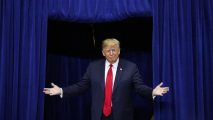Categories
Recent Posts
- Ukraine: Trump blames Zelensky for starting war after massive Russian attack
- Minister Obi Eta Jerome’s death – What do we know?
- Pope Francis transfers Cameroonian-born Nigerian Apostolic Nuncio in Sri Lanka to Ethiopia
- CDC banana exports hit 10,400 tons in Q1 2025
- Algeria to expel 12 French embassy officials
Archives
- April 2025
- March 2025
- February 2025
- January 2025
- December 2024
- November 2024
- October 2024
- September 2024
- August 2024
- July 2024
- June 2024
- May 2024
- April 2024
- March 2024
- February 2024
- January 2024
- December 2023
- November 2023
- October 2023
- September 2023
- August 2023
- July 2023
- June 2023
- May 2023
- April 2023
- March 2023
- February 2023
- January 2023
- December 2022
- November 2022
- October 2022
- September 2022
- August 2022
- July 2022
- June 2022
- May 2022
- April 2022
- March 2022
- February 2022
- January 2022
- December 2021
- November 2021
- October 2021
- September 2021
- August 2021
- July 2021
- June 2021
- May 2021
- April 2021
- March 2021
- February 2021
- January 2021
- December 2020
- November 2020
- October 2020
- September 2020
- August 2020
- July 2020
- June 2020
- May 2020
- April 2020
- March 2020
- February 2020
- January 2020
- December 2019
- November 2019
- October 2019
- September 2019
- August 2019
- July 2019
- June 2019
- May 2019
- April 2019
- March 2019
- February 2019
- January 2019
- December 2018
- November 2018
- October 2018
- September 2018
- August 2018
- July 2018
- June 2018
- May 2018
- April 2018
- March 2018
- February 2018
- January 2018
- December 2017
- November 2017
- October 2017
- September 2017
- August 2017
- July 2017
- June 2017
- May 2017
- April 2017
- March 2017
- February 2017
- January 2017
- December 2016
- November 2016
- October 2016
- September 2016
- August 2016
- July 2016
- June 2016
Featured
 Burkina Faso: Where vision meets discipline
Burkina Faso: Where vision meets discipline  Prosecution of journalists in Cameroon: European Parliament says enough red flags have been ignored
Prosecution of journalists in Cameroon: European Parliament says enough red flags have been ignored  1982-2025: How long will Biya hang on?
1982-2025: How long will Biya hang on?  How Biya and Archbishop Nkea protected the sanctity of the family in Cameroon
How Biya and Archbishop Nkea protected the sanctity of the family in Cameroon  October Presidential Election: Will 92-year-old Biya be re-elected?
October Presidential Election: Will 92-year-old Biya be re-elected?
Most Commented Posts
 4 Anglophone detainees killed in Yaounde
4 Anglophone detainees killed in Yaounde
18 comments Chantal Biya says she will return to Cameroon if General Ivo Yenwo, Martin Belinga Eboutou and Ferdinand Ngoh Ngoh are sacked
Chantal Biya says she will return to Cameroon if General Ivo Yenwo, Martin Belinga Eboutou and Ferdinand Ngoh Ngoh are sacked
13 comments The Anglophone Problem – When Facts don’t Lie
The Anglophone Problem – When Facts don’t Lie
12 comments Anglophone Nationalism: Barrister Eyambe says “hidden plans are at work”
Anglophone Nationalism: Barrister Eyambe says “hidden plans are at work”
12 comments Largest wave of arrest by BIR in Bamenda
Largest wave of arrest by BIR in Bamenda
10 comments
Latest Tweets
Featured
-

Ukraine: Trump blames Zelensky for starting war after massive Russian attack
-

Minister Obi Eta Jerome’s death – What do we know?
-

Pope Francis transfers Cameroonian-born Nigerian Apostolic Nuncio in Sri Lanka to Ethiopia
-

CDC banana exports hit 10,400 tons in Q1 2025
-

Algeria to expel 12 French embassy officials
-

US: 7 900 Cameroonians face deportation
-

Burkina Faso: Where vision meets discipline
© Cameroon Concord News 2025
22, January 2018
German chancellor prepares for intense coalition talks after SPD gives go ahead 0
Germany’s center-left Social Democratic Party (SPD) has voted in favor of coalition talks with Chancellor Angela Merkel’s conservative bloc, paving the way for Europe’s top economy to work for the formation of a new government following months of political impasse.
The SPD, which had initially ruled out governing with Merkel in charge again, narrowly voted for coalition negotiations with her center-right Christian Democratic Union (CDU) on Sunday.
Out of the SPD’s 642 delegates, 372 said ‘Yes’ to talks with the CDU during a special party congress in Bonn.
SPD leader Martin Schulz and the leader of Merkel’s Bavarian allies, Horst Seehofer, are scheduled to meet on Monday, but the full formal talks may start as early as Tuesday or Wednesday.
Schulz, possibly the next foreign minister, tweeted on Sunday that the vote for coalition talks handed him a “duty to fight for all those who had voted against. Let us now concretely improve the lives of people in the country.”
The CDU also expressed satisfaction with the vote, with Saxony Minister President Michael Kretschmer, a CDU member, saying the result “is an approval but it is also clearly showing the disunity of the SPD.”
The coalition talks will likely see Merkel return to power again after the chancellor’s CDU suffered heavy losses to the far-right in last September’s inconclusive election, making her unable to form a government with the Bavarian ally, the Christian Social Union (CSU).
The chancellor was further weakened by the collapse in November of three-way coalition talks with other parties.
She now wants the SPD to agree to a re-run of the “grand coalition” between the two biggest parties that has ruled the nation since 2013. The coalition talks, for now, saved Merkl from risking her position by calling for snap elections.
The chancellor, however, is still far from a done deal. Many Social Democrats still blame her for a poor election result in September and there are many inside the party are opposed to another four years of her chancellorship.
A possible SPD/CDU agreement will form a new German government, but failure in coalition talks would likely put the European Union’s most powerful economy on the path towards repeat elections, which would also put the political future of Merkel to question.
Source: Presstv